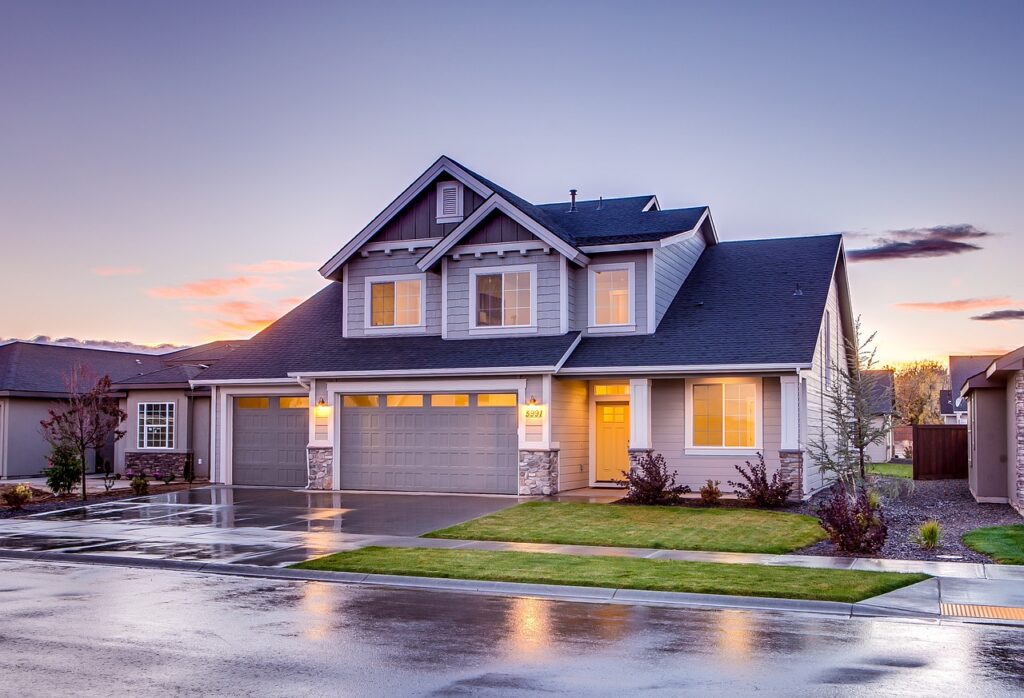Are you interested in investing in property? Our guide can help you determine if it’s a realistic dream and provide tips on making it a reality.
Property investment can take various forms and isn’t limited to purchasing buildings. You can invest in property directly or indirectly, and it’s worth exploring if you’re interested in adding it to your investment portfolio. However, to increase your chances of success, you must conduct thorough research, evaluate your financial situation, and take the appropriate steps. Check out our guide to property investment for more information.
Research your options for investing in property
Investing in property can be a great way to build wealth over time. Here are some options to consider: 1. Rental properties: You can buy a property and rent it out to tenants. This can provide a steady stream of income and the potential for long-term appreciation. 2. Real estate investment trusts (REITs): These are companies that invest in real estate and pay out dividends to shareholders. REITs can be a good way to invest in real estate without the hassle of managing a property. 3. Real estate crowdfunding: This involves pooling money from multiple investors to buy a property. Investors then receive a share of the rental income or profits from the sale of the property. 4. House flipping: This involves buying a property, fixing it up, and selling it for a profit. This can be a high-risk, high-reward strategy. When considering investing in property, it’s important to do your research and understand the risks involved. You should also consider working with a financial advisor or real estate professional to help guide your decisions.
- Buying a new build to sell on
- Buy-to-let
- Property development
- Investing in property abroad
- Real estate investment trusts and other property investment funds
Below is further information about them.
Whatever type you choose, keep in mind that property investment may be lucrative but also hazardous, so it’s wise not to invest more than you can lose in the worst-case scenario. Before investing, you should also ensure that any non-mortgage obligations have been settled and that you have an emergency fund that can pay for three months’ worth of living expenses in the event of an unforeseen event, such as losing your job.
Buying a new build to sell on
If the value of the new build-off plan has increased from the amount agreed upon at the beginning by the time it is done, purchasing it might result in a profit. After that, you may sell it to gain money. Additionally, by beautifying it, you can raise the property’s worth.
But doing so can be dangerous. The completed product may differ from what you anticipated since you haven’t seen it yet. The developer could fail.
You can have trouble selling the house and be forced to continue making mortgage payments until you do. It’s also possible that the community it’s built-in won’t turn out to be what you expected.
Investing in property abroad
If investing in real estate in the UK doesn’t interest you, consider purchasing abroad. Having a location to stay for your holidays when it’s not being rented out, you can generate money by renting it to tourists. You can also benefit when you sell the property if its value increases.
Please read our article on the advantages and disadvantages of investing in foreign real estate before deciding to move further.
Determine whether to move forward with a real estate investment
Buying real estate is a significant choice. It may provide you profits just as readily as it can rob you of your money. Make sure you are not overextending yourself and that you will not struggle if something happens to the property or its finances.
It would be beneficial if you also gave shares and pooled money, as well as other investment forms, some thought. These may also enable you to indirectly participate in real estate with a lower start-up cost.
To enhance your chances of generating money, especially if you’re thinking about purchasing rental property, you’ll need to stay in the property for a long time. Expecting to quickly withdraw your money from this form of investment is unrealistic.
Consider the risks of investing in property
The real estate market is dynamic. The value of real estate fluctuates, as does the demand for rents.
In addition to market trends, there may be issues with particular properties, which is crucial if you invest directly in a single property. The cladding dilemma, for instance, has caused many houses to lose value over the past few years, even while the market has increased.
All of this indicates that if you are investing in real estate, you must consider it a long-term investment lasting at least ten years. In this manner, you should be able to weather any storms and maybe sell when the market is strong once again.
You can face financial difficulties if you overextend yourself and the market declines.
The greatest approach to protect yourself is to diversify your investments, including real estate, to spread the risk. Before making any decisions, conduct comprehensive research and consider independent financial counsel.
How much rental income you’ll need
Lenders will want proof that the property’s rental income will cover your mortgage interest payments by 125% to 145% to grant you a buy-to-let mortgage. Therefore, depending on the lender, you would need to pay between £1,250 and £1,450 a month in rent if your mortgage payment was £1,000 each month.
Speak to rental agencies in the neighborhood to find out the going rate and determine whether you might earn that much money from the house you wish to purchase.
It is difficult to forecast if a property will turn a profit over the long run. This is because various circumstances will affect the future price you can sell it. These factors include the state of the real estate market and how popular the neighborhood becomes. Due to this, investing in real estate might be dangerous.
However, once you’ve made monthly mortgage payments, you may at least determine if the home is likely to turn a profit for you. Don’t forget to include upkeep, repairs, and agency fees in the price.


